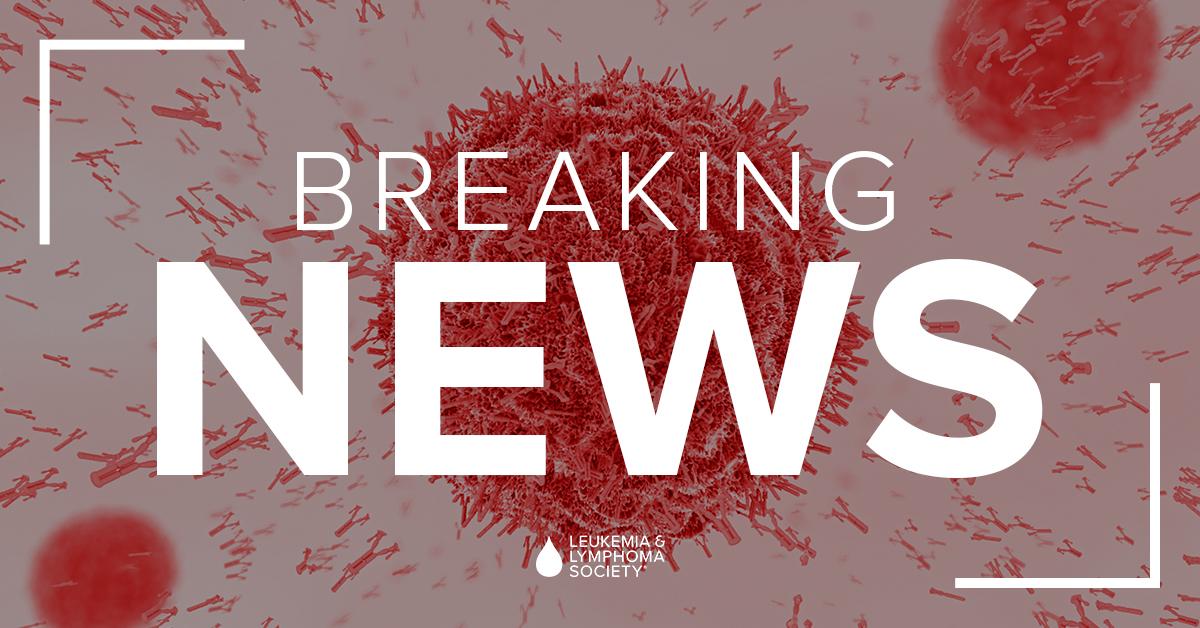LLS thanks the family of Michael Garil, and his parents Bernie and Ethel Garil, for their support of LLS and the blood cancer community. The National Patient Registry is a project of the Michael J. Garil Patient Data Collective, which was created to honor their son’s memory.

The LLS National Patient Registry Reports Data on T-cell Production from COVID-19 Vaccines
RYE BROOK, N.Y., September 8, 2022 – A new study from The Leukemia & Lymphoma Society (LLS), published in Blood Cancer Discovery, a journal of the American Association for Cancer Research (Greenberger et al. 2022. Blood Cancer Disc. T cell response and 3rd serological response.mRNA vaccine), reports that blood cancer patients who do not produce detectable antibodies after COVID-19 vaccination may have another form of protection: T-cells that are designed to attack the COVID-19 virus. Findings from the LLS National Patient Registry, a project of the Michael J. Garil Patient Data Collective, showed that 45% of blood cancer patients who had no detectable antibodies after two Moderna or Pfizer/BioNtech vaccines generated T-cells.
Antibodies and T-cells have critical, but distinct, jobs in fighting COVID-19. High antibodies levels neutralize the virus as soon it enters the respiratory system, preventing it from entering cells, thereby blocking infection completely. T-cells work later in the process, attacking the virus once it is inside cells, limiting virus replication and its ability to cause damage.
“As LLS continues to contribute important scientific information about how COVID-19 vaccines work, our message to blood cancer patients remains the same: get vaccinated, act unvaccinated,” says study author Lee Greenberger, Ph.D., Chief Scientific Officer of LLS. “This means getting all of your vaccine doses as recommended by public health officials—they are safe, and most patients will have at least some benefit—but don’t throw away your mask just yet.”
Third primary dose of COVID-19 vaccine improves antibody response in many blood cancer patients
The new paper also reports on the effect of a third primary COVID-19 vaccine dose on antibody levels in blood cancer patients. About 1 in 4 blood cancer patients will not develop antibodies after the first two doses, so the Centers for Disease Control and Prevention (CDC) recommends a third primary dose in this group (plus a new bivalent booster for those 12 and older) (click here for more information). The LLS study shows that the third dose is helpful, spurring significant levels of antibodies in another 20% of those who lag behind after two doses, and leading to a sizeable increase in antibody levels for those who already have them.
However, the results are not the same across all forms of blood cancer. Patients with B-cell derived cancers, including chronic lymphocytic leukemia and non-Hodgkin lymphomas, have a reduced ability to make anti-spike antibodies compared to patients with other forms of blood cancer and the general population. B cells are the immune cells responsible for making antibodies.
However, even in B-cell cancer patients, the T-cell part of the immune system may still respond. Researchers are still working to determine how much antibody or T cell response is needed to protect against COVID-19 infection or its worst outcomes. In addition, as COVID-19 variants emerge, protection from existing vaccines may change, which is why updated boosters that target both the new Omicron variants and the original strain of the virus are being recommended.
About the LLS National Patient Registry
The LLS National Patient Registry, a project of the Michael J. Garil Patient Data Collective, was created to honor the memory of Michael Garil, who was diagnosed with acute lymphoblastic leukemia in 1974 at the age of 7. His parents, Ethel and Bernard Garil, have generously supported the creation of the LLS National Patient Registry to gather vital information from a large pool of people affected by blood cancers. The current trial was conducted under IRB review with electronic consent of patients. Data were de-identified before being analyzed for vaccine results, and all patient records are held in strict confidence.
About the LLS T-cell study
LLS used the LLS National Patient Registry to link patient reported outcomes (including vaccination, disease type and treatment) to measurements of the immune response by sampling patients’ blood. Over 12,000 patients have participated with informed consent in the LLS Registry to date; it is one of the largest databases examining the response to SARS-CoV-2 vaccination in patients with blood cancer. In prior work, LLS has reported on the ability of blood cancer patients to produce antibodies against COVID-19 after getting the mRNA SARS-CoV-2 vaccines (links here and here). In the new work the antibody response to vaccination was shown in over 1,000 and 500 participants examining the antibody and T cell response, respectively.
About The Leukemia & Lymphoma Society
The Leukemia & Lymphoma Society® (LLS) is a global leader in the fight against cancer. The LLS mission: Cure leukemia, lymphoma, Hodgkin's disease and myeloma. LLS funds lifesaving blood cancer research around the world, provides free information and support services, and is the voice for all blood cancer patients seeking access to quality, affordable, coordinated care.
Founded in 1949 and headquartered in Rye Brook, NY, LLS has regional offices throughout the United States and Canada. To learn more, visit www.LLS.org. Patients should contact the LLS Information Resource Center at (800) 955-4572, Monday through Friday, 9 a.m. to 9 p.m., ET.
For additional information visit lls.org/lls-newsnetwork. Follow us on Facebook, Twitter, and Instagram.
Contact:
Irene Tung
The Leukemia & Lymphoma Society
[email protected]